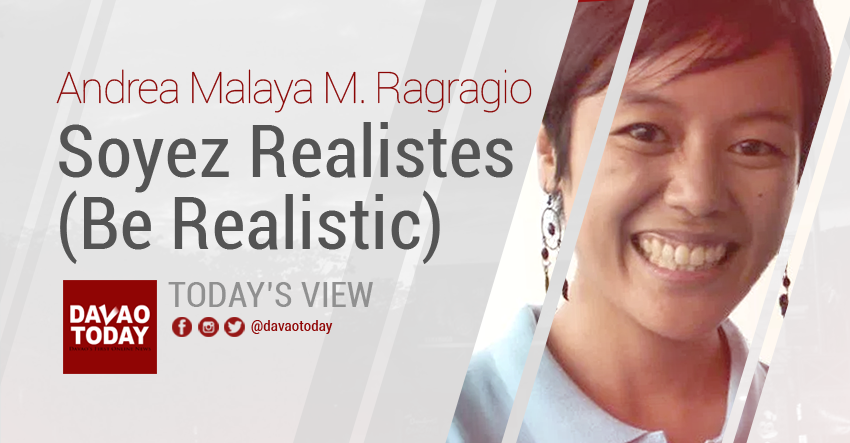Many of my students are fans of the “Humans of (insert city name here)” series of pages on Facebook, which…
Author Archives: ANDREA MALAYA M. RAGRAGIO
A few weeks ago, anthropologist Fr. Albert Alejo gave a lecture here at Leiden University entitled “President Duterte and his…
We see the deployment of state apparatus to protect not the interests of the poorest and most vulnerable but the richest and most powerful
Stories are extraordinary. A writer would spend a lifetime crafting the perfect one, and an anthropologist would spend a lifetime unravelling them. Stories are potent. They can move people to weep and to fight and to believe things they might not have thought possible.
One of the perks of going back to student life is having more time to read more books, something that, contrary to popular assumption, isn’t always true if you’re a full time teacher. Another perk is that you get great suggestions from your teachers, sometimes of books that you haven’t heard of before or had previously been inaccessible. Call me a nerd, but this is all very exciting to me.
The debate sparked by the Apo Whang-od, Kalinga tattooing, and Manila FAME expo controversy is a long time coming in a country like ours which is still striving to find a unifying identity in the face not just of local cultural diversity, but acute social inequality.
I’d like to think that that love springs from, or lies somewhere in the tension between the emotive force of sentimentality and the energetic drive to push for something better. It lies somewhere between hair-raising risk and looking forward to a time when Filipinos no longer have to take any that are unnecessary and unforgiving.
He must have looked forward to coming home, even if it meant having to do chores. A Pantaron Manobo youth, Obillo…
I was shocked and extremely saddened upon hearing of the sudden death of Ronnie Garcia, Executive Director of the Salugpungan…
I was, for the longest time, (and still am, to a certain extent) considered an ingglesera, an epithet that I did not particularly mind. In my mind it was, as I was growing up, an unavoidability. As a child I loved to read (and still do), but aside from the delightfully written and illustrated Ibong Adarna books (which I adored but eventually outgrew), there were almost no non-English books for young readers back in the day. My family also had the middle-class predilection for American TV shows and movies, encouraged in no small way by local programming dominated by noontime shows and melodramas.

